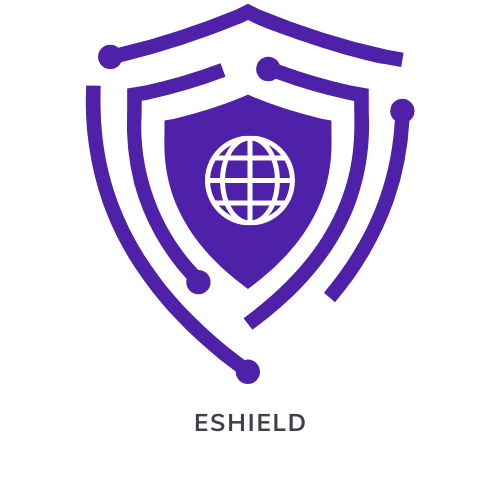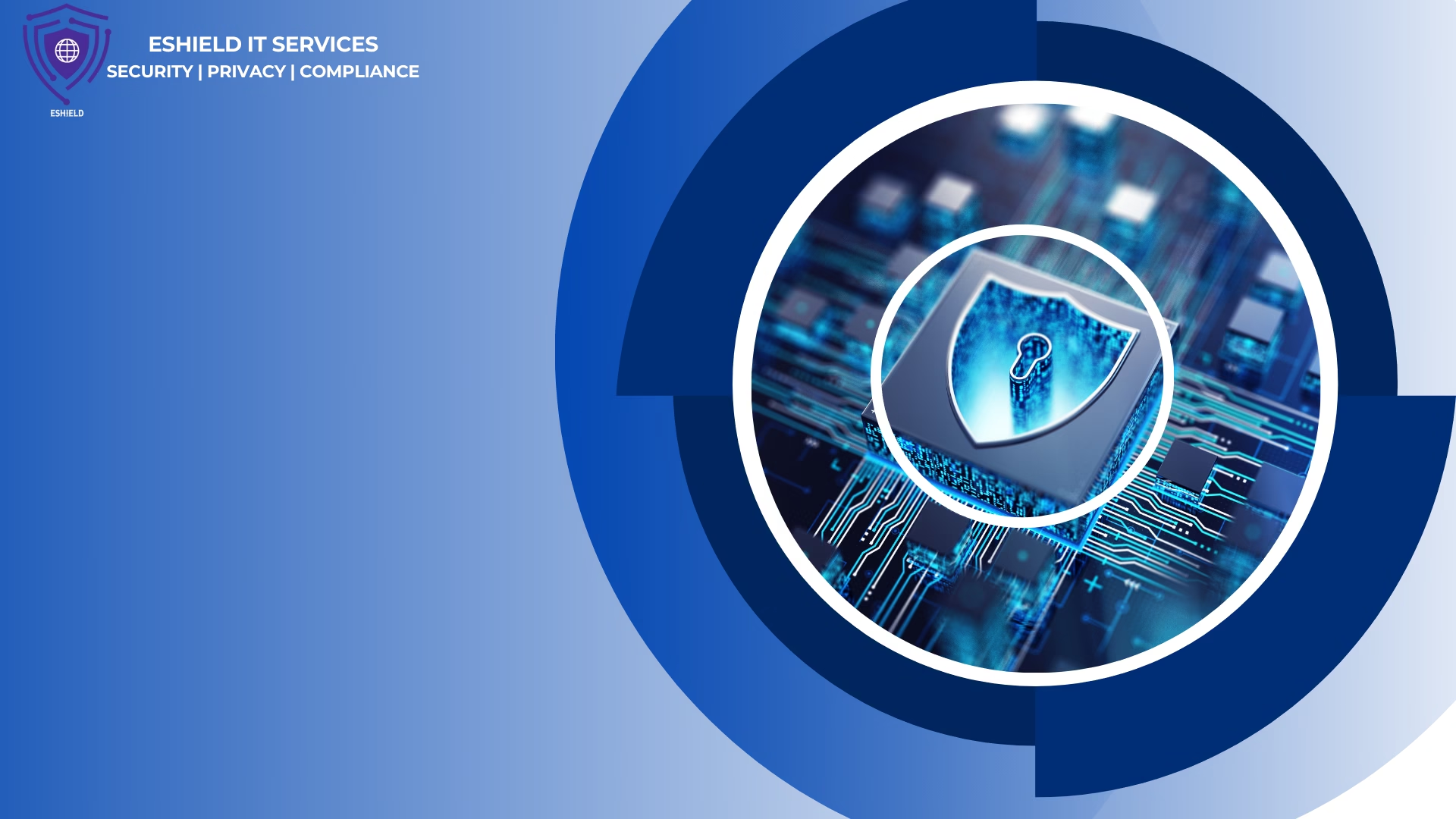In today’s digital world, millions of credit card transactions happen every minute. From online shopping to in-store purchases, sensitive payment information is constantly being shared. But have you ever stopped to wonder — is that data really safe?
For businesses that accept card payments, this isn’t a minor concern. It’s a serious responsibility. And that’s where PCI DSS Compliance becomes crucial.
At eShield IT Services, we specialize in making security simple and effective. In this blog, we’ll help you understand what PCI DSS compliance really is, why it matters, and how your business can stay protected without the stress.
What Is PCI DSS?
PCI DSS stands for Payment Card Industry Data Security Standard. It’s a set of rules created by the world’s biggest credit card companies — Visa, Mastercard, American Express, Discover, and JCB. Their goal was to make sure any business that stores, processes, or transmits credit card data does so securely.
These rules aren’t just suggestions. They’re mandatory if you handle card payments in any way. Whether you’re a large enterprise or a small local business, if you accept credit cards, PCI DSS compliance applies to you.
Why PCI DSS Compliance Is So Important
It Protects Your Customers
When someone hands you their credit card — online or in person — they’re trusting you to protect their information. If that data is exposed or stolen, it damages more than their wallet. It damages their trust in your business.
It Shields Your Business
Data breaches cost more than just money. Fines, lawsuits, lost customers, and a damaged reputation can set your business back years. PCI DSS compliance dramatically reduces the risk of this ever happening.
It’s a Requirement
Even though PCI DSS isn’t a law, it’s required by all major card brands. If you’re found to be non-compliant, you can face heavy penalties, including higher transaction fees or even the loss of your ability to accept card payments.
The 12 PCI DSS Requirements (In Plain Language)
Let’s break down the 12 key requirements of PCI DSS into simple terms. These are the guidelines your business must follow to stay compliant.
- Install and maintain a secure firewall
This protects your systems from external threats and unauthorized access. - Change default passwords and settings
Every device and application comes with default settings — change them immediately to reduce risk. - Protect stored cardholder data
If you keep credit card data, it must be encrypted and stored securely. - Encrypt cardholder data during transmission
Anytime card data is sent over a public network (like the internet), it must be encrypted to prevent interception. - Use antivirus and anti-malware software
Keep your systems protected from viruses, spyware, and other malicious software. - Keep software and systems updated
Regularly apply patches and updates to close security gaps. - Limit access to cardholder data
Only give access to those who truly need it for their job. - Assign a unique ID to every person with access
This makes it easier to track who is accessing your systems and when. - Physically secure data and systems
Lock up devices, servers, and documents that contain sensitive data. - Monitor and log access to cardholder data
Keep detailed logs of who accesses what information and when. - Test security systems regularly
Perform routine scans and penetration tests to find and fix vulnerabilities. - Create and maintain a data security policy
Document your security practices and make sure your team understands and follows them.
Who Needs PCI DSS Compliance?
Many business owners ask, “Does this really apply to me?”
The answer is yes. If you handle credit card payments — whether you’re an online store, a restaurant, a retail shop, a subscription service, or even a freelancer — you must comply with PCI DSS.
No business is too small to be a target for cybercriminals. In fact, smaller businesses are often seen as easier targets because they may not have strong security in place.
The Four Levels of PCI Compliance
PCI DSS compliance isn’t one-size-fits-all. Your business falls into one of four levels based on how many card transactions you handle annually:
- Level 1: Over 6 million transactions per year
- Level 2: 1 million to 6 million
- Level 3: 20,000 to 1 million (for online businesses)
- Level 4: Less than 20,000 transactions per year
Each level has different validation requirements. For example, Level 1 businesses might need to undergo an audit by a certified assessor, while smaller businesses can often complete a self-assessment questionnaire.
What Happens If You’re Not Compliant?
Non-compliance with PCI DSS can result in:
- Fines of up to thousands of dollars per month
- Increased transaction fees from your payment processor
- A damaged reputation that leads to lost customers
- Legal action and class-action lawsuits in the case of a data breach
- Being banned from processing credit card payments altogether
The cost of non-compliance often far outweighs the cost of getting compliant in the first place.
How eShield IT Services Helps You Achieve PCI DSS Compliance
At eShield IT Services, we understand that PCI compliance can feel confusing and time-consuming. That’s why we offer end-to-end solutions to help you stay secure and compliant — without the technical headaches.
Here’s what we offer:
PCI Gap Analysis
We start by reviewing your current setup to see where you fall short of PCI requirements.
Tailored Compliance Roadmap
We create a simple, step-by-step plan to close security gaps and achieve full compliance.
Implementation Support
We help you put the necessary systems and protections in place — firewalls, encryption, access control, and more.
Security Policy Development
We help you write the policies and procedures required for compliance.
Vulnerability Scanning and Pen Testing
We run scans and simulated attacks to find and fix weaknesses in your system before hackers can exploit them.
Ongoing Monitoring and Support
Compliance is not a one-time task. We provide continuous monitoring and support to keep you protected.
Why Businesses Choose eShield IT Services
We’ve earned the trust of clients across industries by offering real results without unnecessary complexity.
Experience
We’ve helped businesses of all sizes navigate PCI DSS compliance successfully.
Clarity
We explain things in everyday language, not technical jargon.
Affordability
Our services are designed to deliver high-value protection at a price small businesses can manage.
Reliability
Our clients know we’re available whenever they need us — day or night.
Common PCI DSS Myths (And the Truth Behind Them)
Myth: “I use a third-party processor, so I don’t need to worry.”
Even if someone else processes your payments, you still have to protect the parts of the system you control — like your website or POS terminal.
Myth: “I’m too small to be targeted by hackers.”
Small businesses are often targeted more because attackers assume they have weaker defenses.
Myth: “I passed a scan, so I’m compliant.”
Security scans are just one piece. You must meet all 12 requirements to be fully compliant.
Compliance Isn’t Just About Rules — It’s About Responsibility
Following PCI DSS is not just about checking boxes. It’s about showing your customers that you take their security seriously. It’s about protecting your business from avoidable disasters. And it’s about building a brand that people trust.
Let’s Get You PCI Compliant Today
Ready to take the first step toward PCI DSS compliance? eShield IT Services is here to make it simple, affordable, and stress-free.
Start with a free consultation. We’ll assess your needs and show you exactly how we can help your business meet all PCI DSS requirements.
Call us, email us, or visit our website today. Let’s lock down your payment security — before a hacker does.


